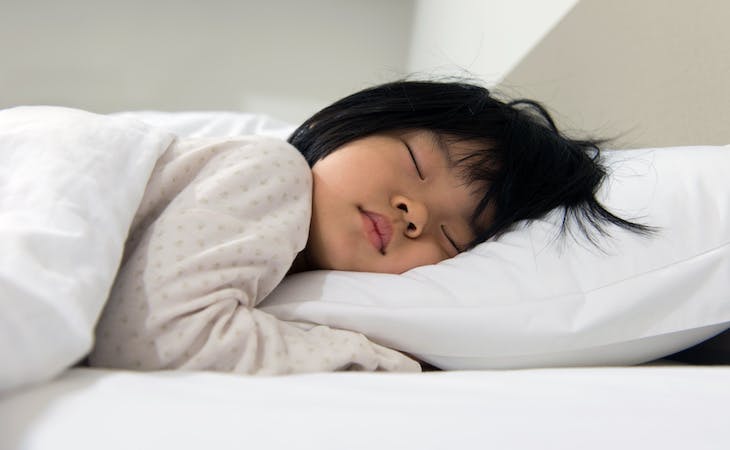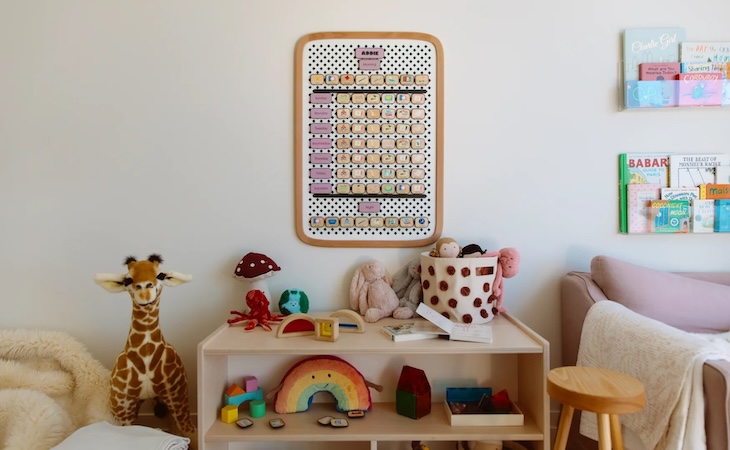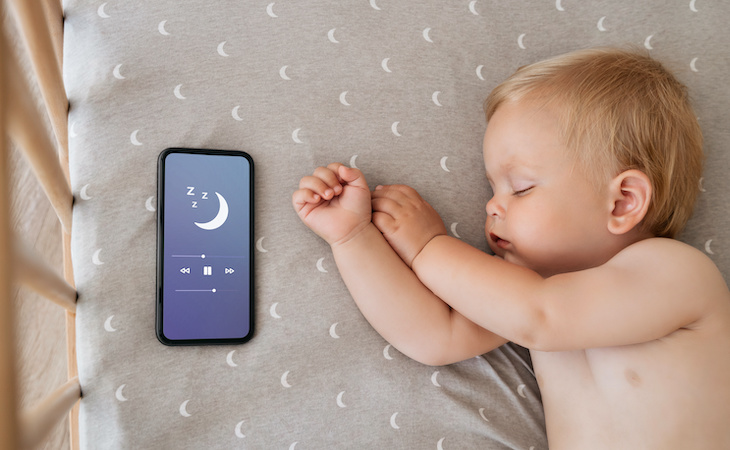If your child is having trouble falling asleep, you’re not alone. About 15% to 25% of children and teens have difficulty with sleep.
Getting enough sleep is crucial for your child’s growth and development. But, your child might be dealing with a poor sleep environment, anxiety, or a health condition and that can make sleep more difficult.
Melatonin is a popular sleep supplement commonly used by adults in order to get more shuteye. But can you give children melatonin? This article will discuss whether or not it’s safe to give children melatonin supplements.
What is melatonin?
Melatonin is a hormone made in the pineal gland in your brain. It helps regulate your child’s natural sleep-wake cycle. When you dim the lights before bed, melatonin production increases in the body, letting your child know it’s time to sleep.
Melatonin is also sold as a dietary supplement and is often used to help people fall asleep. It imitates the effects of the natural melatonin the body produces. Melatonin comes in several forms including gummies, liquids, tablets, and capsules.
Can melatonin help your child sleep better?
The medical community needs to continue to study melatonin’s effects on children. One 2013 PloS One review looked at 19 studies of both children and adults with sleep issues and found that melatonin can help someone fall asleep faster, sleep longer, and improve the quality of sleep.
Another study published in Sleep found melatonin helped children fall asleep faster compared to those who used light therapy as a treatment for insomnia.
Melatonin supplements might help children with certain health conditions where sleep challenges are more common.
According to one 2019 study, those with attention-deficit/hyperactivity disorder (ADHD) who use 3 mg to 6 mg of melatonin at night may fall asleep faster and sleep longer through the night. Children with autism spectrum disorders (ASD) might experience better sleep when taking 1 mg to 3 mg of melatonin.
Is melatonin safe for kids?
Studies performed on children taking melatonin have been small, and none of them have looked at long-term use. There hasn’t been any reliable research indicating the safety and effectiveness of melatonin for children.
While melatonin is produced naturally in the body, doctors aren’t sure what effects melatonin supplements can have on a child’s development, particularly when it comes to their hormones.
Generally, melatonin appears to be safe for children on a short-term basis and might help with sleep concerns. Not all melatonin products are the same, however. Brands can contain varying doses and may not even match what’s labeled on the bottle.
As always, speak with your child’s pediatrician before introducing any new supplements into their routine. The U.S. Food and Drug Administration (FDA) doesn’t regulate melatonin supplements, so it’s best to ask your child’s doctor for product recommendations.
Is melatonin safe for babies?
In the beginning, newborns don’t produce melatonin. Instead, they get their melatonin through the placenta and later, through breastmilk. By about 18 weeks after birth, most babies have developed their circadian rhythms, and natural melatonin production increases as they get older.
It’s not recommended for babies to take melatonin as there’s no long-term research on the effects of melatonin on babies. Instead, talk with your baby’s pediatrician if you notice your baby is having trouble getting a good night’s sleep. They can advise you if you should give your baby melatonin.
What’s a safe melatonin dosage for kids?
The American Academy of Pediatrics states that 0.5 mg to 1 mg of melatonin can be helpful to most children and that they don’t need to take more than 3 mg to 6 mg. Try to give it 30 to 90 minutes before bedtime.
Work with your child’s pediatrician to find the melatonin dose that works for your child. It’s always best to start at the lowest dose and increase as necessary. Unintentional overdoses of melatonin are highest in children who are under 5 years old. (Learn whether melatonin sprays work.)
Are there any side effects of melatonin for children?
Melatonin supplements have fewer side effects than other sleep aids, but it’s still possible for your child to experience them. Side effects of melatonin in children include:
- Nighttime bed-wetting
- Headache or dizziness
- Agitation
- Digestive issues, especially in the first few days of starting
- Drowsiness
How else can you help your child sleep better?
A regular bedtime routine can help your child sleep better and should be tried before turning to melatonin or other sleep medications.
Help your child sleep better by:
- Keeping their room cool and using room-darkening curtains.
- Avoiding large meals within two hours of bedtime.
- Having a regular bedtime.
- Creating a bedtime routine and sticking to it.
- Providing ways to relax before bed such as reading a book together, singing a song, dimming the lights, and using meditation techniques.
- Avoid your child watching TV or playing on a tablet for at least an hour before bed.
FAQs
Is melatonin safe for children?
Melatonin seems to be safe when taken short-term. Your child can experience side effects such as bed-wetting and drowsiness, and melatonin might interact with certain medications. Talk with your doctor if you want to try melatonin to help your child sleep. They may be able to provide you with a children’s melatonin dosage chart.
Can I give my children melatonin every night?
There have been small studies showing melatonin can help children with sleep challenges. But doctors aren’t sure if melatonin is safe in the long-term for children and what dose works best. It’s not been proven that melatonin is safe for children to use every night long-term—and since melatonin is a hormone, it could affect development such as puberty.
Practicing good bedtime routines can help set your child up for better sleep in the long run. It might take some time to get a good routine going with your child, and you may have to make adjustments along the way. But it can be worth investing the time to give your child good sleep habits.
How much melatonin is safe for kids?
According to the FDA, there’s no standard dose for children when it comes to melatonin supplements. Therefore, if you decide to give your child melatonin to help them sleep, always talk to their pediatrician first. Start out with the lowest dose and increase if needed. Don’t increase your child’s dose without talking with their pediatrician.
Talk with your child’s pediatrician if you still have concerns about your child’s sleep. Your child may have other health conditions affecting their sleep quality that should be addressed.
Struggling with your child’s sleep issues? Here are some sleep tips for new parents.




